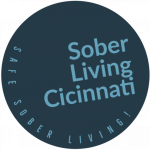Substance abuse refers to the misuse or excessive use of drugs or alcohol, which can lead to negative consequences in various aspects of an individual’s life. It involves the recurrent use of substances in situations where it is physically hazardous, causes legal problems, or interferes with daily responsibilities. Substance abuse is often characterized by a lack of control over drug or alcohol consumption and an inability to stop or reduce usage despite the negative impact it has on one’s life.
On the other hand, addiction goes beyond substance abuse. It is a chronic disease that affects the brain and behavior, leading to compulsive drug or alcohol use, despite the harmful consequences. Addiction is characterized by a physical and psychological dependence on a substance, resulting in intense cravings and an inability to function without it. It often leads to tolerance, where higher doses are needed to achieve the desired effect, and withdrawal symptoms when the substance is stopped abruptly.
Signs and Symptoms of Substance Abuse
Identifying substance abuse can be challenging as it can manifest differently in each individual. However, there are common signs and symptoms to look out for. Some physical indicators include bloodshot eyes, frequent nosebleeds, sudden weight loss or gain, and changes in sleep patterns. Behavioral signs may include a decline in performance at work or school, frequent conflicts with loved ones, secrecy about activities, and a sudden change in social circle. Additionally, psychological symptoms such as mood swings, irritability, anxiety, and depression can also indicate substance abuse.
Signs and Symptoms of Addiction
When substance abuse progresses to addiction, the signs and symptoms become more severe. Physical signs may include constant cravings, withdrawal symptoms when attempting to quit, deteriorating physical appearance, and increased tolerance. Behavioral changes become even more noticeable, with individuals prioritizing drug or alcohol use over all other aspects of their lives. They may engage in risky behaviors, experience financial difficulties, and isolate themselves from loved ones. Psychological symptoms worsen, with individuals experiencing severe mood swings, paranoia, hallucinations, and a preoccupation with obtaining and using the substance.
Common Substances of Abuse
Substances of abuse can vary widely, but some are more commonly misused than others. Alcohol, a legal substance, is one of the most prevalent substances of abuse. It is easily accessible and frequently used to cope with stress or as a form of social lubricant. Illicit drugs such as cocaine, heroin, methamphetamine, and marijuana are also commonly abused. Prescription medications, including opioids, benzodiazepines, and stimulants, are often misused due to their potential for addiction. It is essential to be aware of these substances and their effects to understand the scope of the problem.
Risk Factors for Substance Abuse and Addiction
There are various risk factors that can contribute to the development of substance abuse and addiction. These factors can be biological, such as a family history of addiction or mental health disorders. Environmental factors, such as exposure to substance abuse at an early age or living in a high-stress environment, can also increase the likelihood of substance abuse. Additionally, social factors like peer pressure and a lack of family support play a significant role. Understanding these risk factors can help us identify individuals who may be more susceptible to substance abuse and addiction.
Effects of Substance Abuse and Addiction on Physical and Mental Health
Substance abuse and addiction have far-reaching effects on both physical and mental health. Prolonged substance abuse can lead to a range of physical ailments, including liver damage, cardiovascular problems, respiratory issues, and compromised immune function. Mental health is also severely affected, with substance abuse often co-occurring with conditions such as depression, anxiety, and personality disorders. The combination of these factors can lead to a vicious cycle where individuals turn to substances to self-medicate, exacerbating their mental health issues and perpetuating the addiction.
Treatment Options for Substance Abuse and Addiction
Fortunately, there are various treatment options available to individuals struggling with substance abuse and addiction. These may include detoxification, where the body is rid of the substance under medical supervision, followed by rehabilitation programs that focus on counseling, therapy, and support groups. In some cases, medication-assisted treatment is used to manage withdrawal symptoms and cravings. It is essential for individuals to seek professional help to determine the most appropriate treatment plan based on their unique circumstances.
Support and Resources for Individuals Struggling with Substance Abuse and Addiction
Support and resources are vital for individuals on the journey to recovery. There are numerous organizations, both online and offline, that provide invaluable support, counseling, and education for individuals and their families. Support groups like Alcoholics Anonymous (AA) and Narcotics Anonymous (NA) offer a safe space for individuals to share their experiences and receive guidance from others who have walked a similar path. Additionally, therapy and counseling services can play a crucial role in addressing the underlying issues contributing to substance abuse and addiction.
Conclusion: Seeking Help and Breaking the Cycle of Substance Abuse and Addiction
Understanding the difference between substance abuse and addiction is the first step towards breaking the cycle of dependency. It is essential to recognize the signs and symptoms, educate ourselves about the common substances of abuse, and be aware of the risk factors involved. By seeking help and providing support to those struggling with substance abuse and addiction, we can make a significant impact on their journey to recovery. With the right treatment options and access to support resources, individuals can break free from the grip of addiction and reclaim their lives.
If you or someone you know is struggling with substance abuse or addiction, reach out to a healthcare professional or contact a helpline in your country for immediate assistance. Call us today at 855-675-1892.













